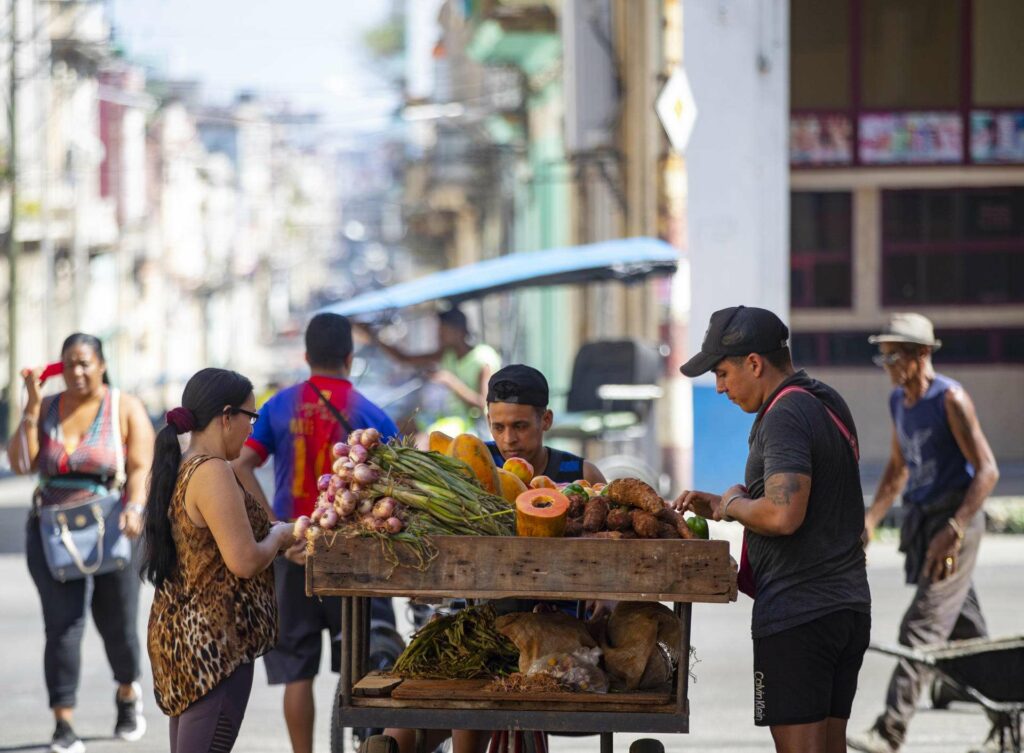“Help me. My employer is torturing me,” Meriance Kabu wrote. “Every day I am covered in blood, help me!”
She quickly folded her note and tossed it through the locked iron door of the suburban Kuala Lumpur apartment where she was living and working as a maid.
A passing woman took it. When she read it, she immediately took the note to a retired police officer who lived in that very building. “If she had stayed there, she would surely have died,” she said later.
That same day, December 20, 2014, Malaysian police knocked on the door of the apartment where Meriance lived, and from which she had not left for eight months.
“I felt like I was breaking down,” he says, remembering the moment he saw the policemen. “They told me ‘don’t be afraid, we’re here.’ At that moment I felt strong again. I felt I was breathing again. The policemen came over and I told them the truth.”
This story contains details that some readers may find disturbing.
Nine years later, Meriance continues to seek justice. Her case, which is far from unique, reveals just how vulnerable undocumented migrants are, and how often justice eludes even those who survive to tell her story.
In 2015, police charged Meriance’s employer, Ong Su Ping Serene, with causing serious injury, attempted murder, human trafficking and violations of immigration laws. She pleaded not guilty.
Meriance testified in court before finally returning to her family. Two years later, she received word from the Indonesian embassy that prosecutors had dropped the case, citing insufficient evidence.
“The employer was released, where is the justice,” asks the country’s ambassador to Malaysia, Hermono (many Indonesians use one name) who met Meriance in October.
The embassy retained legal counsel for her and has been pressing for the reopening of the case against Meriance’s employer.
“What was the reason for the delay? Isn’t five years enough? If we don’t keep asking, (the case) will be forgotten, especially since Meriance has already returned home.”
It’s unclear why so few abuse cases end up being prosecuted in Malaysia, but activists point to a culture that views domestic workers, most of whom are Indonesian, as second-class citizens who don’t deserve the same level of protection. than the Malays.
The Malaysian Foreign Ministry told the BBC they would “make sure that justice is done according to the law.”
In 2018, a court in Indonesia indicted two men for trafficking Meriance. The judge found that she had been sent to work in Malaysia “as a domestic servant for Ong Su Ping Serene, who tortured her, causing serious injuries” that took her to hospital.
Meriance’s ordeal was described in all its disturbing detail in the verdict that her employer had beaten her severely, broken her nose on one occasion, and used to torture her with a hot iron, tongs, hammers, sticks, and tongs.
Eight years later, his body still bears the marks of these tortures. He still has a deep gash on his upper lip, four teeth are missing, and one of his ears is misshapen.
Her husband, Karvius, says she was unrecognizable when she was rescued: “I was so shocked when they showed me photos of Meri in the hospital.”
Last year, Malaysia and Indonesia signed an agreement to improve conditions for Indonesian domestic workers in the country. Indonesia is now pushing to reopen the case.
Undocumented workers like her are especially vulnerable because their passports are withheld and they live with their employer in a foreign country, leaving them few options for seeking help.
“Everyone has to take more responsibility,” says Malaysian parliamentarian Hannah Yeoh, who wants to see an end to what she describes as a culture of silence about the abuse of domestic workers in the country.
Malaysia’s Ministry of Manpower says there are more than 63,000 Indonesian domestic workers in the country, but that doesn’t include undocumented workers. There are no clear estimates on their number. The Indonesian embassy says it has received reports of almost 500 cases of abuse in the past five years.
The figure is only “the tip of the iceberg”, says Ambassador Hermono, because there are many cases, especially those involving undocumented workers, that are not reported.
“I don’t know when this will end. What we do know is that there are more and more victims, from torture cases to non-payment of wages and other crimes.”
“I’m going to fight for justice until I die,” says Meriance. “I just want to be able to ask my former employer, ‘why did you torture me?'”
She was 32 years old when she decided to look for work abroad so that “the children would stop crying because they had no food.” Life was hard in her village in West Timor, where there is no electricity or running water. And her husband’s salary as a day laborer was not enough to support her family of six.
Meriance accepted the offer to work in Malaysia and dreamed of building a home for her family.
When he arrived in Kuala Lumpur in April 2014, the agent took his passport and handed it over to his employer. Recruiters in Indonesia had already taken the phone from him.
But Meriance dreamed of a better life. Her job was to “take care of Grandma,” the mother of her employer Serene, who was 93 years old at the time. Three weeks after she started working, she says, the beatings started.
One night, Serena wanted to cook fish but couldn’t find it in the fridge because Meriance had mistakenly put it in the freezer. Suddenly, she felt the hit of a frozen fish. Her head began to bleed. After that episode, she says, they beat her every day.
Meriance remembers that they never let her out of the apartment. The apartment door was always closed and she did not have the keys. Four of her neighbors who lived in the same building did not know of her existence until the police arrived.
“I only saw her the night she was rescued,” said one of them.
Meriance says the torture and beatings only stopped when her employer had had enough. She then ordered Meriance to clean up her blood that had stained the floors and walls.
Sometimes, he says, he thought about taking his own life. But the thought of her four children kept her alive.
“I also thought about fighting back,” he says. “But if he had fought, he would have died.”
Then one day at the end of 2014, he looked in the mirror and felt that something had changed. “She couldn’t take it anymore. She was mad, not at my employer. She was mad at me. She had to try and get out of there.”
So it was that he wrote the message that would restore his freedom.
The BBC tried numerous times to contact her employer, Ong Su Ping Serena, to hear her account, but she refused to speak.
Meriance says she fights for justice for others like her as well, and for those who didn’t survive.
Hermono is now dealing with a case of a domestic worker who he says was tortured in a completely inhumane way. When she was rescued she weighed just 30 kilos. Her employer is being prosecuted.
But some, like 20-year-old Adelina Sau, were not rescued in time. Her employer starved and tortured her to death
She was charged with murder, but in 2019 the prosecution dropped the charges. An appeal to reopen the case was rejected last year.
Adelina was from the same district as Meriance in West Timor. Meriance says that he met Adelina’s mother in her town and told her, “Even though your daughter is dead, her voice is within me.”
Remember that you can receive notifications from BBC News World. Download the new version of our app and activate them so you don’t miss out on our best content.
















